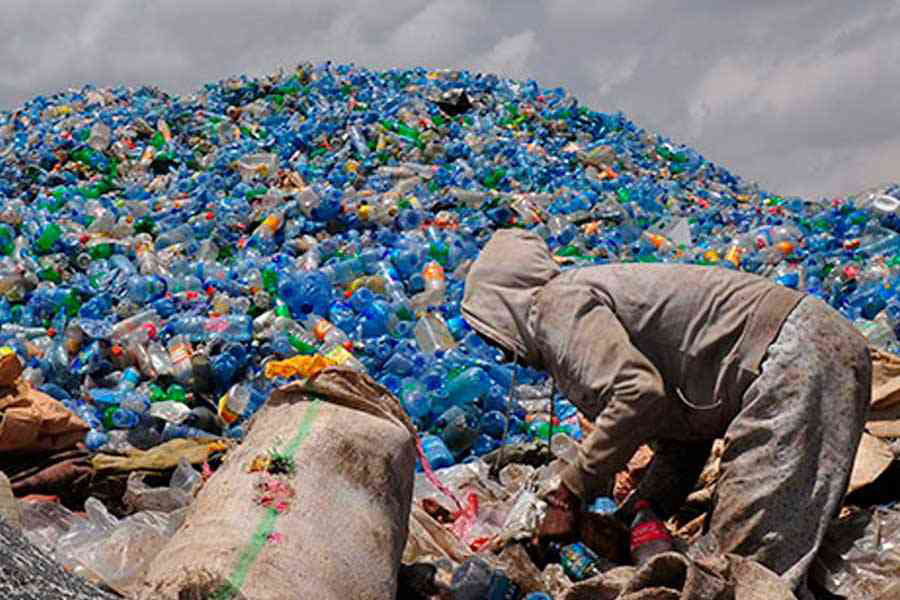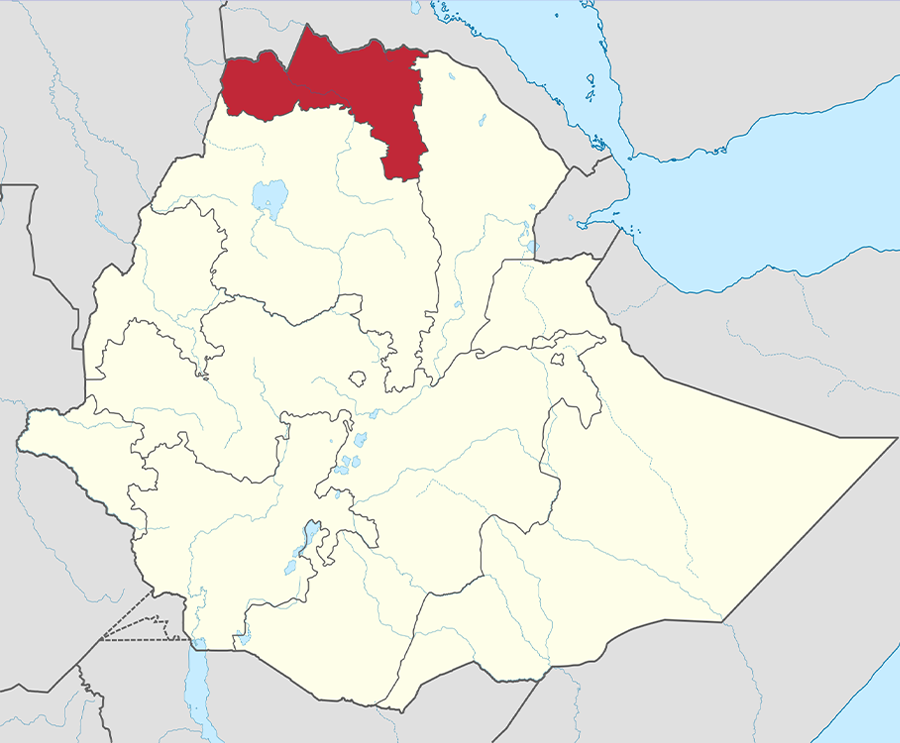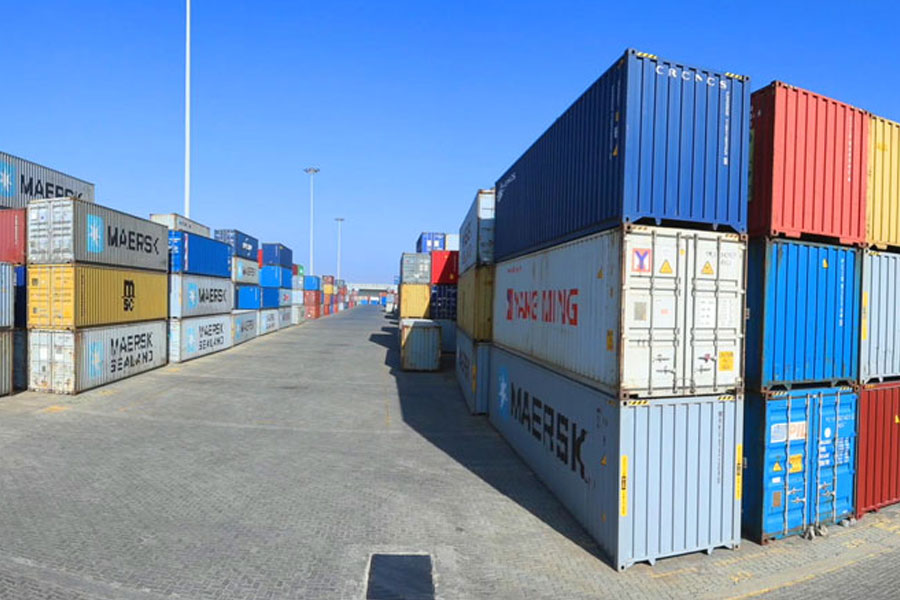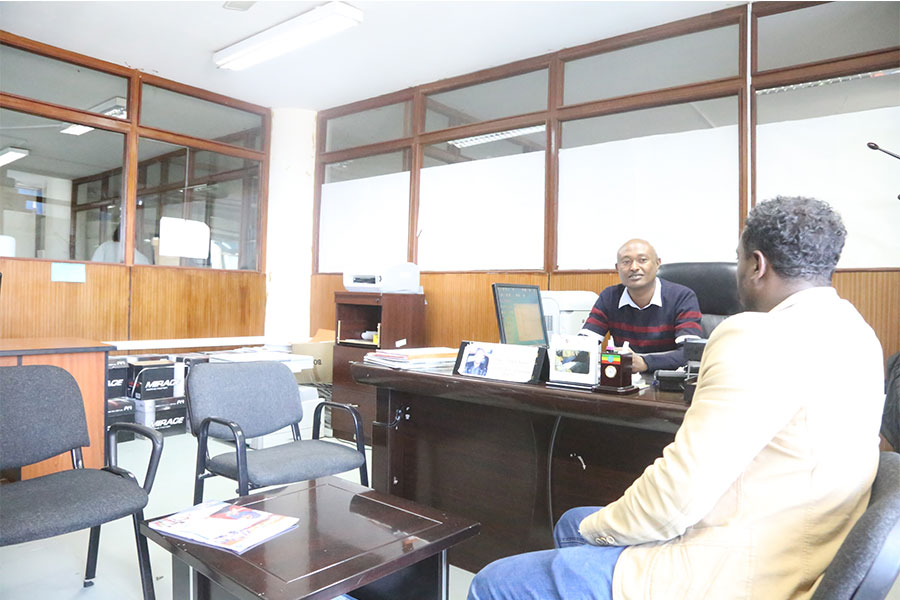
A new bill that completely bans the use of single-use plastic shopping bags for both commercial and household purposes is expected to be tabled to the Council of Ministers this week.
Drafted by the Environment, Forest & Climate Change Commission, the draft proclamation was sent to the Office of the Attorney General, which returned the bill with comments to the Commission. The Commission scheduled to table the bill to the Council of Ministers at the end of this week.
On top of banning the production, import and usage of disposable plastic shopping bags, the bill suggests industries that use plastic as packaging material obtain a license from the Commission.
“This comes as a condition for the manufacturers or importers to take on the full responsibility of controlling the life cycle of the plastic waste produced,” said Ayele Hegena (PhD), director general for policy, law, and standards research development at the Commission.
“Unless the producers or importers have presided over the control of the environmental impact of the plastic," said Ayele, "their license shall be revoked by the Authority."
It also proposed that water bottlers embark upon recycling or partake with other recyclers to mitigate the impact of the negative externalities.
Bottlers are required to establish a value chain from the production, collection, recycling and export or reuse of the end material. In the former proclamation of solid waste management, tin cans and glass containers were the only ones subjected to be involved in the value chain.
The draft law, which is expected to be legislated in the coming six months, also set forth that subjects involved in outdoor advertisement cannot operate unless they have gained authorisation from the Commission.
“It’s evident in our surrounding area filled with advertisement papers from the poles to the big billboards," Ayele said, "hence, the parties involved have to partake to extenuate the impact."
The new bill, which has been in the making for the past two years, will replace a 13-year-old directive. It fully prohibits the manufacturing or import of non-biodegradable plastic bags. It is expected to be enacted after six months of the legislation of the proclamation.
Andualem Mekonnen (PhD), an environmentalist, finds regulating the production of plastic bags to be very difficult, saying that it can be made at a household level.
“Hence, the ban is long overdue, considering the overwhelming environmental impact it had on the country,” said Andualem.
The draft proclamation also proposed that anyone who litters waste in public places, such as roads, sidewalks or parks should be fined between 1,000 Br to 2,000 Br. The bill also removed a ban on the import of used tires. The provision is transferred to another proclamation legislated two years ago on banning the import of hazardous used products.
Every household has the responsibility to clean its surrounding from litter within a 20m radius from their residence; whereas, a commercial place must do so within a 50m radius from its premises. Institutions are liable within a 30m radius.
In the capital, a person produces 0.45Kg of solid waste a day. The city, in general, generates 166.4tn of plastic waste from 3,200tn of total waste produced a day. Currently, there are 74 cleaning share associations with 623 members and 130 medium trucks that transport the primary waste from door to door.
The city uses the 50-year-old open dumping landfill, Reppi, which is 13Km from the centre of the city. The landfill covers a 37ha footprint and made headlines when it was the site of a deadly landslide back in 2017. It remains prone to a landslide, but officials say it is currently the only option.
Andualem says that only issuing pragmatic laws will not solve the problem but should be coupled with strengthening the government's law enforcement capacity to strictly enforce the law and make sure industry players abide by the law.
"The community shall make use of reusable items such as cloth bags," Andualem recommended.
Plastic bag manufacturers like Gift Plastic Industry claim they were not informed about the ban.
"This is new to us," said Zewide Endale, general manager of Gift. "We haven't been consulted in the process."
Just like the other plastic bag makers, Gift has been making the bags with a license it secured for the making of polymer materials, adding a production line for producing plastic bags.
"We'll be highly affected as there are 80 employees under that production line," Zewide told Fortune.
PUBLISHED ON
Jan 18,2020 [ VOL
20 , NO
1029]

Fortune News | Mar 30,2024

Radar | Oct 05,2019

Fortune News | Nov 04,2020

Fortune News | Jul 01,2023

Radar | Jun 07,2020

Commentaries | Jun 22,2019

Fortune News | Jan 01,2022

Fortune News | Mar 19,2022

Agenda | Dec 25,2018

Editorial | Jun 17,2023

Dec 22 , 2024 . By TIZITA SHEWAFERAW
Charged with transforming colossal state-owned enterprises into modern and competitiv...

Aug 18 , 2024 . By AKSAH ITALO
Although predictable Yonas Zerihun's job in the ride-hailing service is not immune to...

Jul 28 , 2024 . By TIZITA SHEWAFERAW
Unhabitual, perhaps too many, Samuel Gebreyohannes, 38, used to occasionally enjoy a couple of beers at breakfast. However, he recently swit...

Jul 13 , 2024 . By AKSAH ITALO
Investors who rely on tractors, trucks, and field vehicles for commuting, transporting commodities, and f...

Jul 12 , 2025
Political leaders and their policy advisors often promise great leaps forward, yet th...

Jul 5 , 2025
Six years ago, Ethiopia was the darling of international liberal commentators. A year...

Jun 28 , 2025
Meseret Damtie, the assertive auditor general, has never been shy about naming names...

Jun 21 , 2025
A well-worn adage says, “Budget is not destiny, but it is direction.” Examining t...